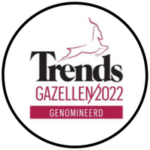Summary In the contemporary business environment, digital procurement is becoming increasingly popular and sought after by businesses around the world. The relationships …
How can procurement innovation be introduced to businesses?
Why does procurement innovation matter?
Innovation matters because it directly impacts an organisation’s ability to stay competitive, resilient, and efficient. 83% prioritise procurement digitisation, which is a clear signal that traditional methods are no longer enough.
Innovative tools enable real-time risk management, ESG tracking, and better supplier decisions. They also streamline processes and attract top talent. By embracing technology, organisations can future-proof their operations and gain a competitive edge.
Why introduce innovation into procurement?
87% of executives believe innovation is key to success. Modernising procurement helps teams work smarter, reduce costs, and stay resilient.

Improve cost efficiency and supplier performance
Streamline processes, reduce spend, and unlock better supplier deals. Innovation in procurement improves contract performance and delivers long-term value.

Enable smarter, data-led decisions
Leverage real-time management insights and analytics to make informed purchasing decisions. Data-driven procurement helps reduce risk and maximise outcomes.

Drive sustainability and ESG goals
Track and manage ESG performance across your supply base. Innovative tools support responsible sourcing and align with sustainability management targets.
Boost agility in a volatile market
Quickly respond to supply chain disruptions with improved visibility, accuracy, and flexible sourcing management strategies powered by digital procurement tools.
How to introduce innovation in procurement
Companies that source innovation externally see stronger revenue growth, profitability, and impact. To unlock these results, procurement must move from transactional to strategic, powered by the right tools, people, and mindset.
Audit and assess current procurement practices
Begin by reviewing your procurement processes, tools, and supplier relationships. Identify inefficiencies, gaps, and opportunities where innovation or digitisation could drive real improvements.
Align innovation with business goals
Innovation efforts should tie directly to business management outcomes. Whether the focus is on cost savings, resilience, or ESG performance, ensure procurement is aligned with the company strategy.
Explore digital tools and procurement tech
Adopt procurement technologies like automation, AI, spend analytics, and supplier platforms. These tools streamline management workflows, improve decision-making, and unlock strategic value. innovation or digitisation could drive real improvements.
Upskill your team and collaborate cross-functionally
Equip your team with the skills to work with new technologies and collaborate with IT, finance, and operations. Innovation thrives when people collaborate procurement is aligned with the company strategy.
Pilot, measure, and scale innovation
Test and evaluate new ideas through small-scale pilot projects. Use KPIs to track impact, refine the approach taken, and scale successful initiatives across your procurement management function.
What does procurement innovation look like in action?
Innovation in procurement is not just about flashy tech—it is about solving real problems. Picture a mid-sized company struggling with delays, rising costs, and supplier inconsistencies. The procurement team, once bogged down with spreadsheets and emails, decided to make a change. They started by mapping out their current processes, identifying bottlenecks, and introducing a simple spend analytics tool.
Suddenly, they could see where money was leaking—and fix it. Then came automation. Manual purchase orders became a thing of the past, freeing up time to focus on supplier strategy. They also brought in sustainability tracking, which helped align procurement with the company’s ESG goals.
But the biggest shift? Team mindset. With support from leadership and cross-functional collaboration, procurement became a driver of value, not just cost control. Innovation looked less like disruption, and more like smart, practical steps that made life easier—and the business stronger. That is what procurement innovation looks like in action.

Ready to innovate your procurement function with Kronos Group?
Leading organisations understand this: only 20% of the most innovative companies manage innovation informally, compared to a third of the least innovative.Innovation does not happen by accident—it needs structure, clarity, and the right partners. While leading organisations treat innovation as a strategic, scalable process, many fall behind by managing it informally.
At Kronos Group, our digital transformation solutions help you turn innovation into action. We work with you to identify opportunities, implement smart tools, and build the capabilities your team needs to drive long-term value. Whether you are aiming for greater efficiency, stronger supplier performance, or more resilient operations, we help you get there—with clarity and confidence.
Fighting the effects of inflation with sourcing and procurement consultants
Stay up-to-date on the latest insights on procurement, finance, and project management.
Summary Strategic procurement has become a necessity in today’s business world and organisations try to remain competitive. Having the right procurement strategies …
Summary The world of consulting has been undergoing a massive transformation and management consulting jobs are experiencing the impacts of these changes. …
FAQ
Start by reviewing your current procurement process. Identify bottlenecks, manual tasks, and areas with limited visibility. Once you know where the gaps are, align your innovation goals with business objectives, engage key stakeholders early, and explore pilot opportunities with digital tools or new sourcing strategies.
Digital tools streamline, automate, and optimise procurement activities. They improve visibility across the supply chain, help teams make data-led decisions, and cut down on manual work. From e-sourcing platforms to AI-driven spend analytics, the right tools unlock efficiency, cost savings, and stronger supplier relationships.
Yes – and often faster than large organisations. With fewer layers of complexity, small businesses can adopt flexible, cost-effective tools and processes that give them a competitive edge. Innovation helps improve supplier negotiations, track spending more accurately, and respond quickly to market shifts – all critical for growth.














